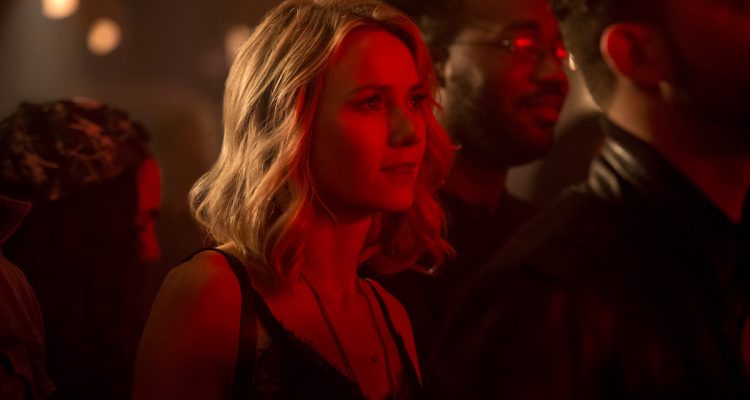Jesus.
Hey, you asked.
Is Watts at least redeemable?
It pains me to type out this sentence, but not really, no. She’s not the worst part of “Gypsy” by any means — that’d be the showrunning and direction — but her work is way too self-conscious. She puts a ton of energy into expressing Jean’s lack of confidence, playing her as overly aware of her situation moment-to-moment; Jean is a woman out of her depth as she gets deeper and deeper into her double life, but we get the notion that she feels out of her depth in her real life, too — an outsider in a world governed by soccer-mom politicking, bake sales, PTA meetings, and patriarchal expectations. Michael, for all his good qualities, kinda sorta implies that he’d prefer that Jean fit more into that soccer-mom mold; Jean indulges him at times, because she’s a capable woman and because she has to pick up Michael’s slack, but we can understand why Jean feels a need to pretend to be someone else. She wants to examine paths not taken.
The problem is that Watts doesn’t successfully balance that out, so Jean always feels like Jean, even when she’s posturing as Diane, her alter ego. She has wiggle room, of course — again, the Diane persona is outside of Jean’s comfort zone — but Watts doesn’t let us see how much Jean enjoys being Diane. She just lets us see her nerves and her uncertainty. Those are the elements that carry her performance, and, if we’re being honest, that’s a major bummer. Watts is a great actress — cerebral, sensual, spunky, and capable of maintaining dignified stances, wearing her angst on her sleeve, and having a good time all at once. In “Gypsy,” her myriad talents as a performer never cohere into a whole character. She feels lost.
It’s possible I’m being too hard on her — she blends well with her co-stars, specifically Crudup and Cookson, the two members of the cast she shares the screen with the most, but that just reminds us how good she can be when she’s engaged, and that, in turn, feels like a tease. Not the good kind, either. The unfortunate kind.
But that’s “Gypsy” in a nutshell. It’s logical that there should be so much restrained emotion here; this is, after all, a story about suppressed wants, centered on characters who aren’t able to say aloud what they need and what they feel on a regular basis. There’s a near-great scene in episode seven, “Euphoria,” where both Michael and Jean are allowed to talk frankly about the people they became for each other, but they’re talking to other people: Jean to Sidney and Michael to Alexis (Melanie Liburd), his hot young secretary, who exists for the sole purpose of tempting Michael as Sidney tempts Jean. You wish the rest of the show bothered being this honest about its characters, or about its intentions.

What gets in the way of that?
See above: Showrunning and direction. I didn’t throw that early reference to “Fifty Shades of Grey” casually. Sam Taylor-Johnson not only directed the first two episodes of “Gypsy,” she also executive produced the whole project alongside Lisa Rubin. After checking out “Gypsy,” I’ve still got my mind made up about “Fifty Shades of Grey” author E.L. James — she’s a hack — but I’m re-evaluating how much blame should fall on Taylor-Johnson for that movie’s sheer awfulness. I guess I’d rather take shots at James because she’s the architect responsible for constructing that terrible, horrible, no good, very bad franchise, but “Gypsy” suggests that maybe Taylor-Johnson isn’t right for material of this sort. I’m beating a putrefied horse here, but this is gelid stuff. It needs heat. Granted, going too far in the opposite range would be just as bad for the show’s health, but there’s no equity between temperatures.
I don’t really know how to solve that; maybe if “Gypsy” had the guts to go melodramatic on us and let its character’s ids run wild, we might have had something. If nothing else, that’s a more entertaining program than the one streaming on Netflix as we speak. But it’s too timid as is, and timidity is especially a buzzkill in erotically-charged content like this. It holds back on the excitement that stories told in this mode owe their audience while also keeping us at arm’s length from the characters. The show’s relative prudeness is an obstacle. The fog surrounding its characters’ psychology is a brick wall. I’m not sure how “Gypsy” expects us to invest in the cast’s various existential plights, but such is my disappointment.
So, what you’re saying is that you don’t recommend this.
If you’re looking for compelling story, look literally elsewhere, especially if your main source of streaming entertainment is Netflix. [C-]

